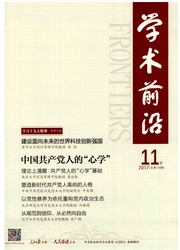

 中文摘要:
中文摘要:
本文采用突变级数法、熵值法等构建我国财政脆弱性评价指标体系,研究我国财政脆弱性,分析脆弱性的影响因素。结果表明:2002~2004年、2008年、2010~2014年我国财政脆弱性程度较往年升高。虽然2010年至2014年间的脆弱性指数数值较往年处于较高水平,但总体呈现下降态势,说明近年来我国财政脆弱性状况正在逐渐改善;财政脆弱性同时受到内部和外部因素的影响,内部因子对财政脆弱性的影响程度普遍高于外部因子。内部因素中,财政赤字相关指标对财政脆弱性的影响最显著。外部因素中,物价因素是影响财政脆弱性的最主要因子之一,金融市场因子对财政脆弱性亦有显著影响。本文最后给出相应政策建议。
 英文摘要:
英文摘要:
This paper uses the catastrophe series method and the entropy method to construct the financial vulnerability assessment index system in our country, and studies the financial fragility and the influencing factors of vulnerability. The results show that the degree of financial fragility in China was relatively high in 2008 and during the 2002-2004 and 2010-2014 periods. Although the vulnerability index was high from 2010 to 2014, the overall trend was declining, indicating that China's financial fragility situation is gradually improving in recent years. Fiscal vulnerability is affected by both internal and external factors, internal factors generally have a stronger impact on fiscal vulnerability than external factors. Among the internal factors, fiscal deficit indicators have the most significant influence on financial vulnerability. Among the external factors, price is one of the most important factors affecting financial vulnerability, and financial market factors also have a significant impact on financial vulnerability. In the end, this paper provides the corresponding policy recommendations.
 同期刊论文项目
同期刊论文项目
 同项目期刊论文
同项目期刊论文
 期刊信息
期刊信息
